THE PIANO (1993)
In the mid-19th century, a mute woman is sent to New Zealand along with her young daughter and prized piano for an arranged marriage to a farmer, but is soon lusted after by a farm worker.
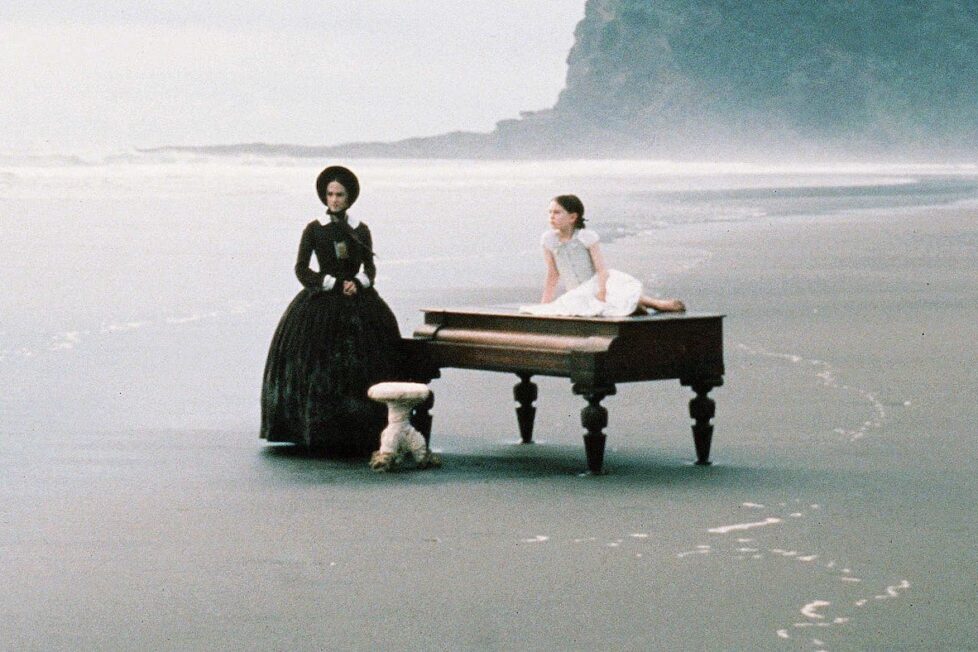
In the mid-19th century, a mute woman is sent to New Zealand along with her young daughter and prized piano for an arranged marriage to a farmer, but is soon lusted after by a farm worker.


Of all the acclaimed independent directors who made their breakthroughs in the 1990s, few are as intriguing and elusive as Jane Campion. While her peers would gravitate towards work which would make them household names, Campion’s work remained beautifully intricate, specific, and non-commercial.
Though it wasn’t her debut (she’d directed two features before this), The Piano served to many as an introduction to the New Zealand director, and 29 years on it’s considered by most to be both her calling card and greatest triumph.
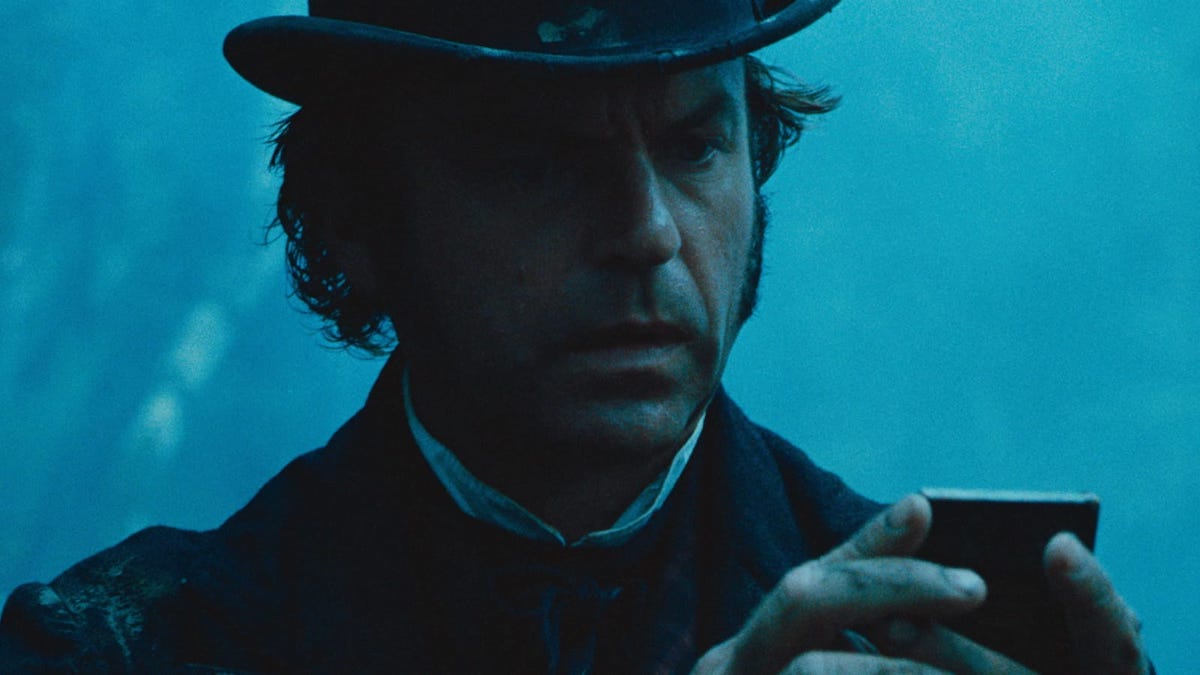
It seems strangely reductive to view an artist through their most popular work, but The Piano still fascinates as a film that appears like an anomaly now: a delicate and idiosyncratic arthouse feature, made far away from the Hollywood system, that was both critically and commercially successful. With Campion’s striking The Power of the Dog (2021) still fresh in people’s minds, and despite its comparisons with her past work, The Piano still stands on its own as a wholly unique creation, with which there are few comparisons.
In the mid-1800s, Ada McGrath (Holly Hunter) finds her way to New Zealand from Scotland, where she’s to marry a frontiersman, Alisdair Stewart (Sam Neill). She’s selectively mute, though her occasional narration provides insights, not to mention a chance to hear that wonderfully specific voice of Hunter’s. And she’s accompanied by her young daughter Flora (Anna Paquin), who serves as her interpreter.
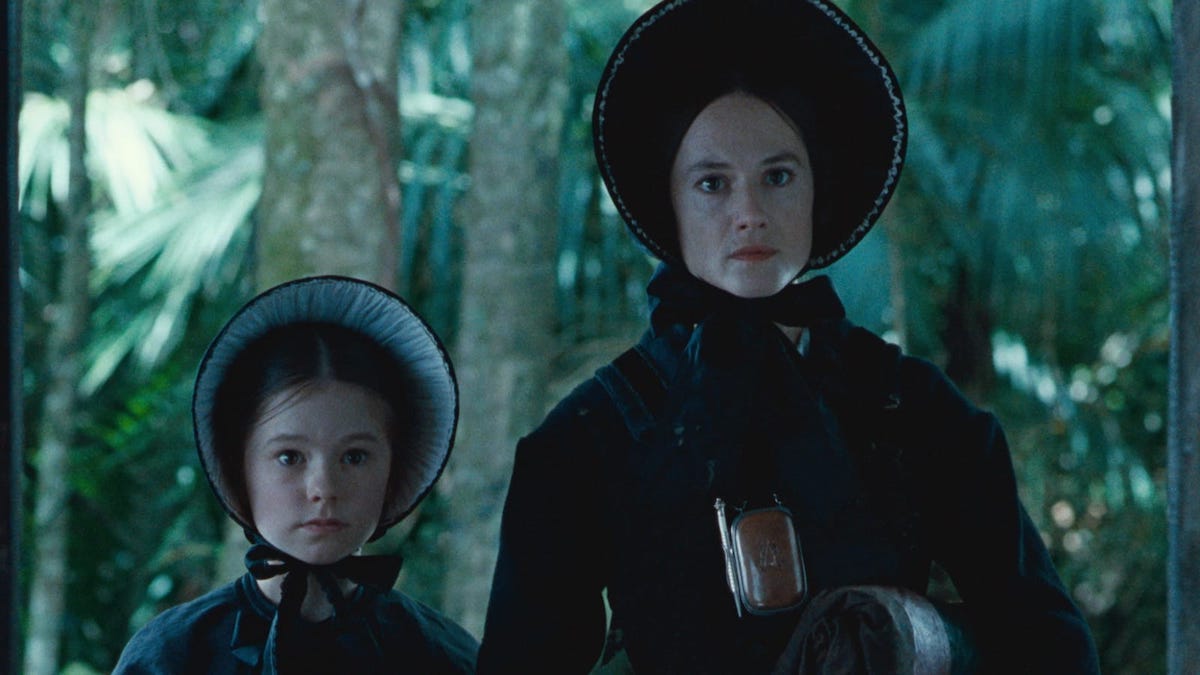
When we meet them, they’re being carried by Maori natives from a wooden boat that seems moments from being crushed under the waves. On the beach they wait, surrounded by their belongings, most precious of all being Ada’s piano. Ada fashions a petticoat into a makeshift tent for her and her daughter, and here Campion demonstrates a beautiful sense of perseverance. Even as the tides wash in and threaten to pull away this temporary home, mother and daughter hold each other close in a house she has built, from old objects which now serve a purpose different from the one for which they were created.
This emphasis on objects and their use is deployed sparingly and powerfully throughout the film. The piano, for instance, is many things: it’s an instrument and a method through which Ada can communicate. But soon, Alisdair repurposes it as a trading tool, offering both the instrument and her playing to George Baines (Harvey Keitel), a man who has lived amongst the Maori for many years, in exchange for a plot of land.
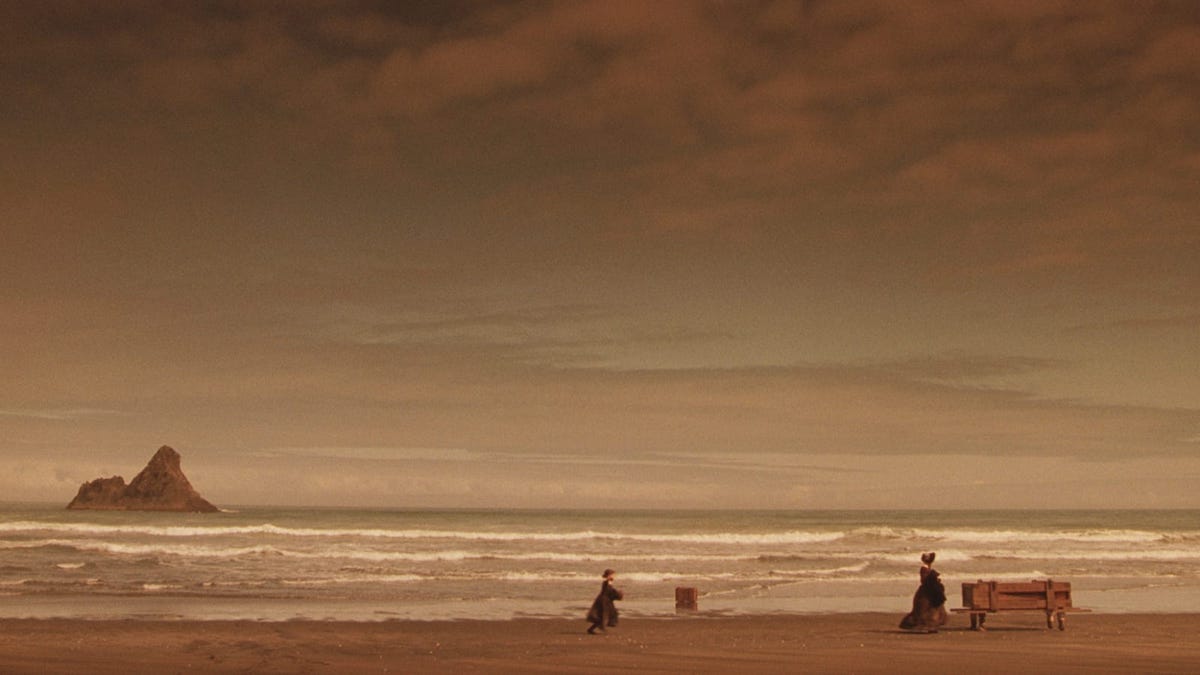
But objects and trade are mechanical things under Campion’s direction, and rather, it’s the human decision of how they are used—and how we use each other—that is foregrounded. Campion often lights the interiors of Ada’s home with a rich, golden warmth, her camera gliding elegantly across Ada’s hands as she plays.
When she plays for pleasure, there’s euphoria and intimacy, the music expressing everything that she cannot. Watching Hunter in these scenes is rapturous, not unlike the experience of watching live music, at the point where the music and performer are no longer separate, instead fused together as part of a unified whole.
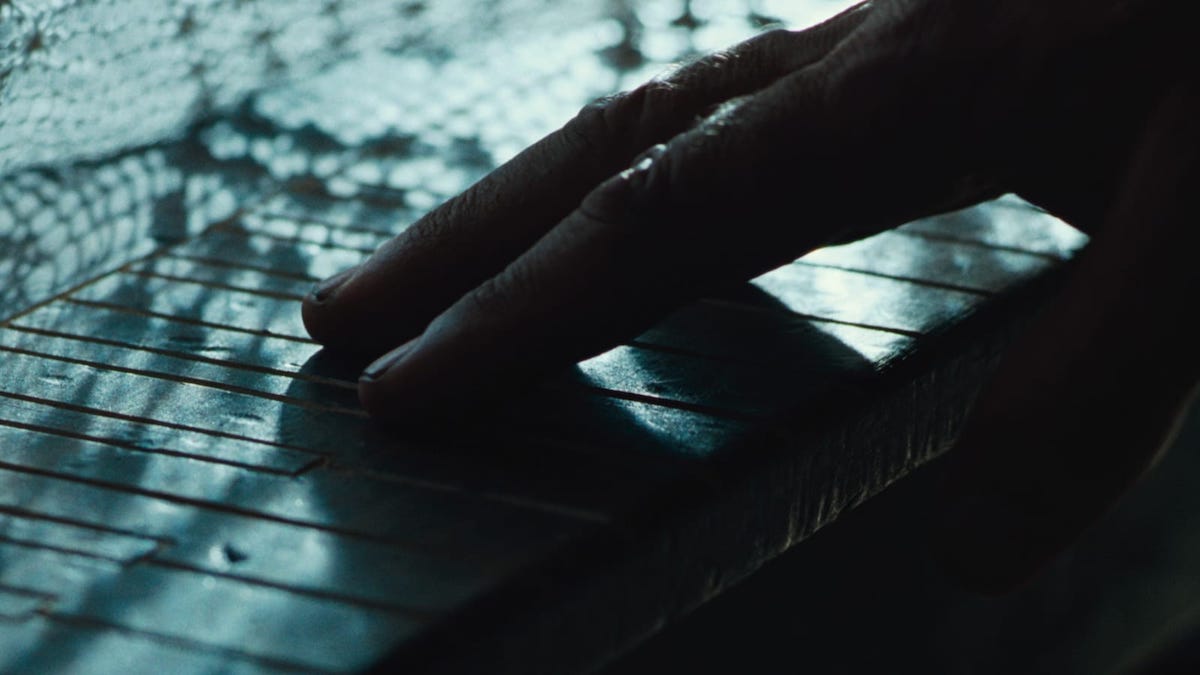
Similarly, the use of Hunter’s hands when she signs to her daughter is a performance in its own right: they snake and make shapes that words couldn’t. She carries a notepad in a locket around her neck which she uses scarcely, and when she does they’re rushed scribbles done in anger and haste, lacking the grace of the music and her hands. Campion is purposeful in the use of objects like these.
One of the most sly moments comes when Alisdair takes out a photo of Ada in a frame. He looks momentarily at her likeness, before using the reflection of its glass to comb his hair. Is the object’s primary function to look at her, or to look at himself? Before he even meets Ada, she’s already to him just that: an object that can be used practically. When he does trade her services against her wishes, she is as much a part of the deal as the instrument is, just another thing of a fixed monetary value which must be used to its full purpose.
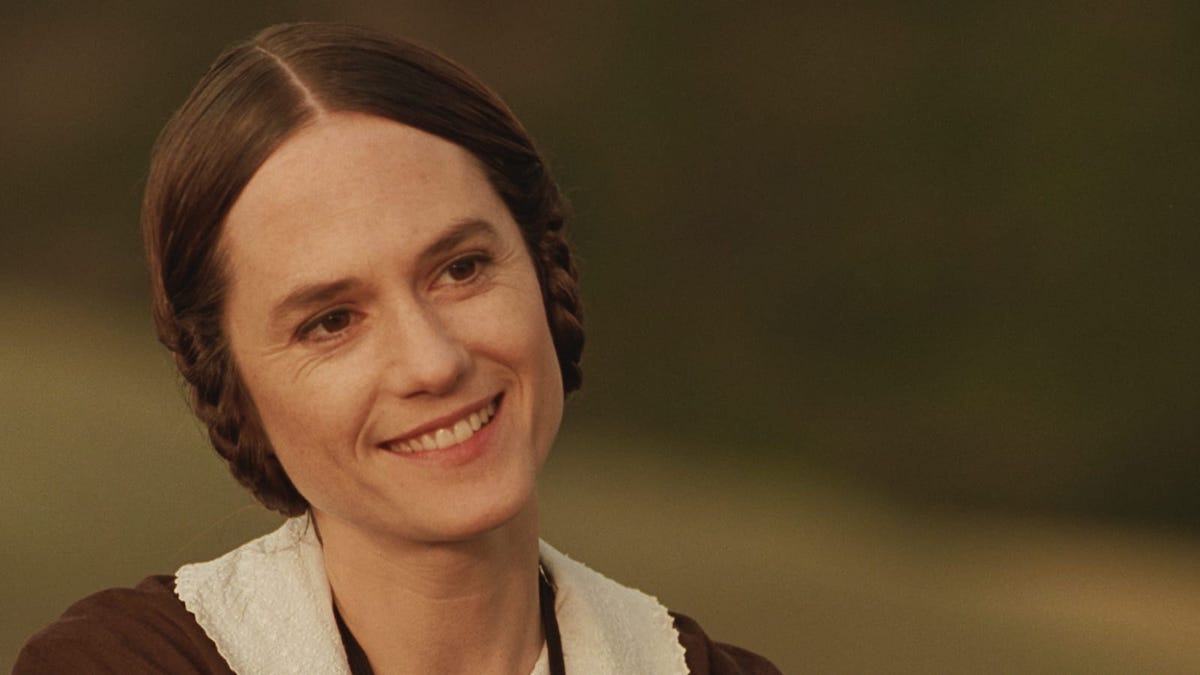
Sam Neill, whose apparent gentleness in the outset is later revealed to be something darker, plays Alisdair with great depth and ambiguity, while Harvey Keitel, though unusual casting, feels outright dangerous, as if he might combust at any moment. The two men are not so unlike each other, both brimming with sexual desire and passing Ada back and forth like a lit match which might spark their fuse at any moment.
Holly Hunter gives so much to Ada through glances and body language. Ada believes that she was once able to communicate telepathically with her late husband, and it is a testament to Hunter’s performance that some sort of telepathy speaks from somewhere deep inside Ada and is loud and clear in the course of the film. She’s remote and worried, as if anticipating constantly the next man who’ll make a remark or try to use her for his own purposes. Yet Campion and Hunter don’t simplify Ada, nor victimise her. There’s a resoluteness to her choices and an inner temerity that seems to shine in front of her.
Similarly, Campion’s filmmaking choices are measured, working on a sense of internal complexity that shows itself in subtle and striking ways. The cutting is slow and gentle as Ada plays her piano at home, allowing an enveloping sensation to take over. But when she’s at George’s house, a cold blue hue grasps the frame and the cutting becomes weaponised, even harsh.
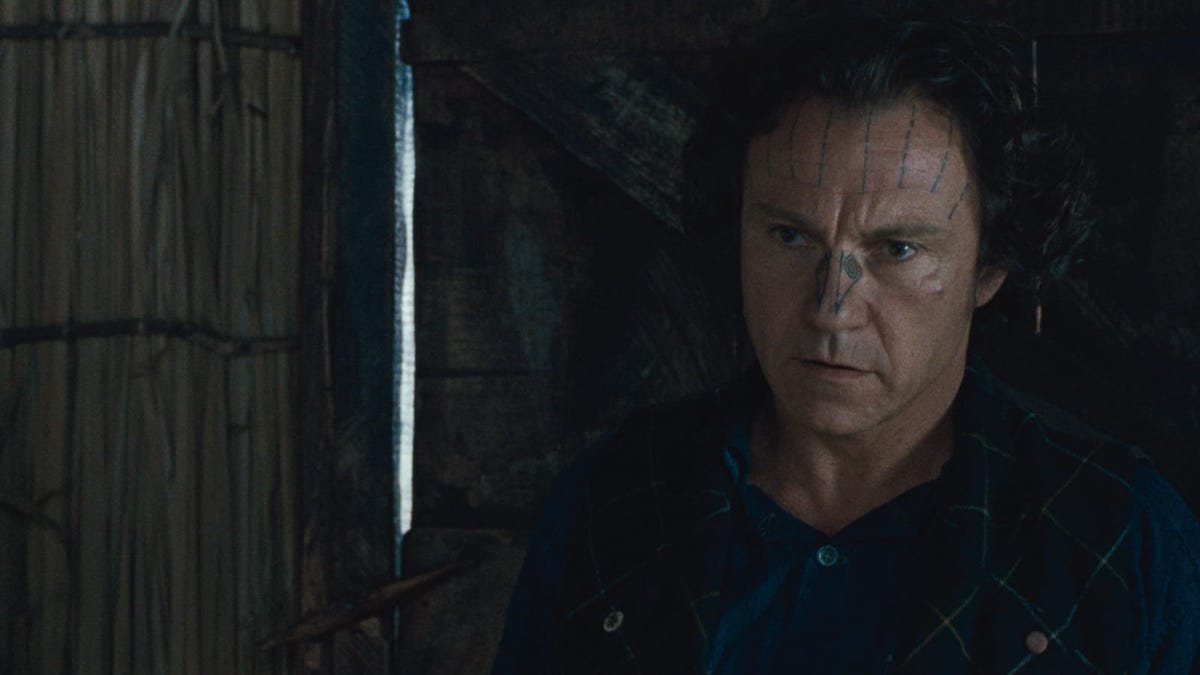
George, supposedly, wants piano lessons from Ada. But he soon makes it clear he doesn’t want to learn. He wants to hear the music, to hear her, and to be allowed to do whatever he wants in each of the sessions. When the sessions are finished, she’ll be free from him, and she’ll have her piano back. They agree to take a number of lessons based on the number of black keys on a piano: 36.
As they go on, George’s lust becomes smothering. He behaves like a boy, and she tries to persevere as she has done so many times before, but the tension is palpable. Outside the dilapidated house, a continuous downpour falls, and her daughter, and her husband, seem far, far away.
What unveils itself slowly is something far more disarming than lust, or ownership. George, who walks around the house like a tortured inmate as she plays, is seemingly trapped by his inability to read and write, just as she is by her inability to speak. And they are both trapped by a past that haunts them, these strangers in a strange land. An unspoken bond of desperation and limitation blossoms, at the centre of which is a deep sexual attraction to each other.
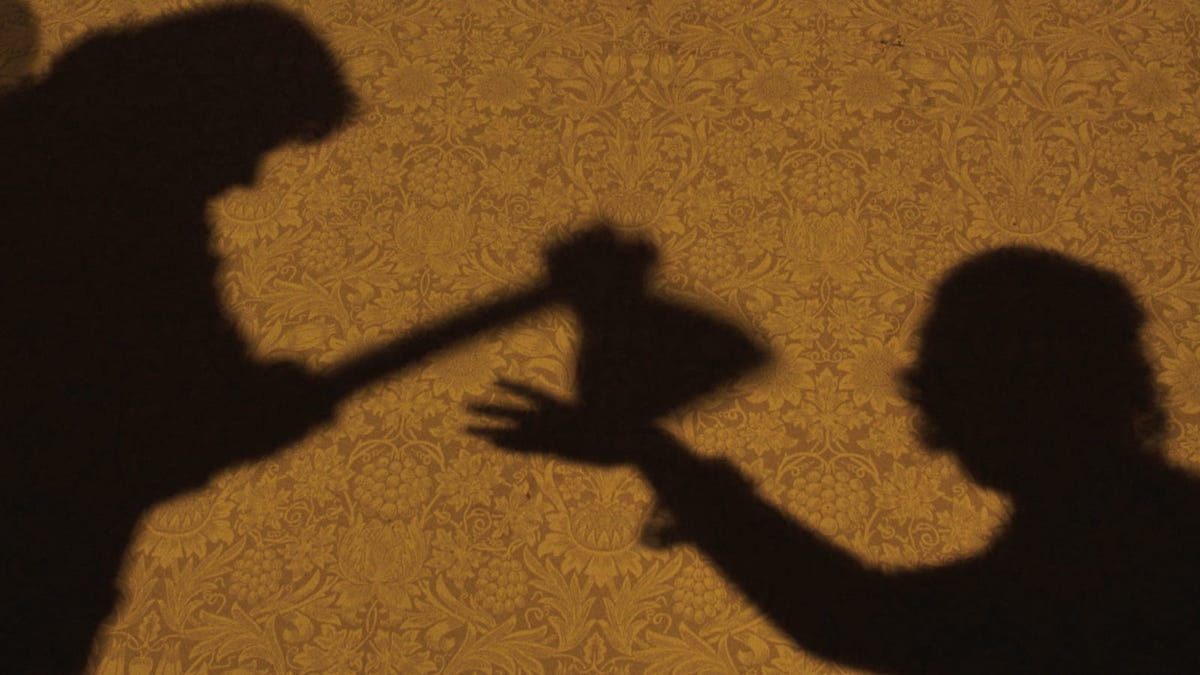
It isn’t so much a reversal of roles between Ada and George that Campion presents, but a meeting in the middle between two deeply unhappy people, like the white keys and the black keys of a piano—essential to each other and to the music they make. Their sessions become physical, and Campion uses the actors’ bodies like two north poles of a magnet, pushing each other away with invisible friction whenever they get too close. But when they finally do meet, the catharsis is overwhelming.
Campion cleverly uses the camera’s gaze to link together the bodies of the men in Ada’s life. Her eyes linger on George’s physique and its rounded masculinity, with a focus on his and later, Alisdair’s posteriors. When she goes home to Alisdair, she tries to explore his body in the way that she has George’s—but he is uninterested and anxious. In a reversal of the typical gender roles typically portrayed on film, Ada is the instigator (or, at least, wants to be), and Alisdair seems almost vulnerable, lying on his front with his buttocks exposed. With the power dynamics shifted, Alisdair is now an object of lust and he does not care for it.
Campion brings into question the very nature of sex and love in relationships and the ultimate outcome of those in which two people are using each other for very different means. As they foray further into the forbidden, the dreadful thrill of danger develops, as true desires are forced to the surface. The gentle quality inherent in Sam Neill’s performance is twisted into something seething and dominant, recalling his work in Andrzej Żuławski’s horrifying Possession (1981). Harvey Keitel seems to unwrap bandage after bandage to reveal the walking wound that is George, a more sensitive incarnation perhaps of his disturbing turn in the previous year’s Bad Lieutenant (1992).
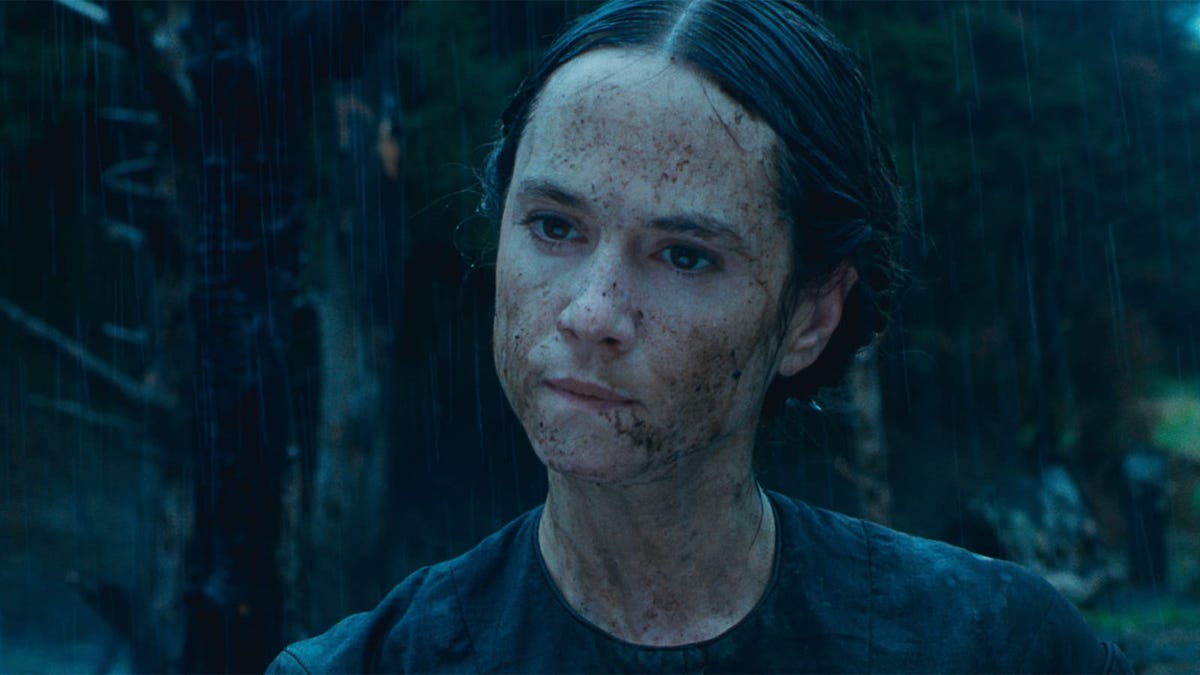
And Holly Hunter contrasts Ada’s daydreaming with moments of blunt terror. When the nature of her lessons with George are revealed, and after Alisdair resorts to savage violence, she stumbles in the mud, the rain mixing with the blood pouring from her hand, and in Hunter’s expression is both silence and screaming. She moves like a dancer, her petticoat blooming outwards as she falls to the soaked ground. It’s one of the most phenomenal pieces of acting I can recall: a total physical embodiment of shock and incomprehension. Here, in a sense, is a life ended in a moment, a voice silenced. Hunter somehow manages to communicate a wealth of years ahead passing before her eyes, a life changing instantly. It’s a miraculous moment.
That is the great achievement of Campion and her cast in The Piano. There is an abundance of moments that feel otherworldly, such as a piano lugged across a forest like a small-scale Fitzcarraldo (1982), or Flora running across hills that seem to have impossible dimensions. These images are not placed just to surprise, though they do; but to hint towards a sense of that which cannot be communicated on paper or through voice, only through music and image. It conveys a lyrical and internal force that pushes us together or apart, or makes us long for a person, or feeling.
It becomes clear that ‘not talking’ doesn’t mean ‘voiceless’, and that Ada’s non-verbalism isn’t the reason she and Alisdair cannot communicate. And in making a film in which silence and quietness take on many different functions, Campion allows room for meaning to develop, and to be taken however it strikes the viewer. It’s a gift, in a sense: a true telepathic communication of the greatest depth and feeling.
NEW ZEALAND • AUSTRALIA • FRANCE | 1993 | 120 MINUTES | 1.85:1 | COLOUR | ENGLISH • MAORI

Studio Canal releases this 4K edition of the film in conjunction with Criterion, who do it justice. It’s a phenomenally beautiful film and makes use of natural lighting and colouring—from the blue hues of the rainstorms to the deep greens of the forests. The HDR gives a pleasingly natural atmosphere to the palette, particularly gorgeous in the scenes of reds and burgundies inside Ada’s home. The film, which was shot on 35mm, has had a 4K upscaling overseen by Jane Campion, and it retains much of the natural healthy grain of the film.
The image isn’t hugely crisp, but this is a nearly 30-year-old film, and moreover, any softness in the image is certainly intentional, wisely choosing atmosphere over intense sharpness. The sound is the remaster’s strongest and most essential upgrade: the DTS-HD 5.1 surround sound is truly enveloping and particularly important for a film in which the sound is a key element.

writer & director: Jane Campion.
starring: Holly Hunter, Harvey Keitel, Sam Neill, Anna Paquin, Kerry Walker & Genevieve Lemon.
